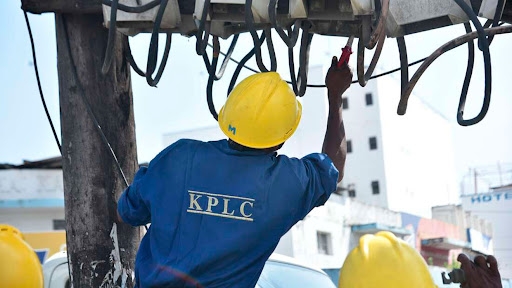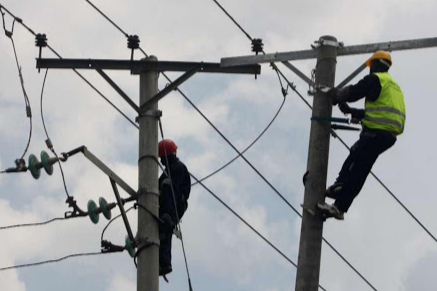
 Kenya Power staff at work./FILE
Kenya Power staff at work./FILE
A new Bill has handed county governments a major boost in their protracted battle with the Kenya Power and Lighting Company over the payment of wayleave fees.
The Energy (Amendment) Bill, 2025 seeks to grant counties the authority to impose wayleave charges on Kenya Power and other state agencies without requiring approval from the Cabinet Secretary for Energy and Petroleum.
“This amendment Bill seeks to exempt county governments from public bodies that need to seek consent from the Cabinet Secretary in charge of Energy and Petroleum before levying charges on wayleaves,” the Bill reads in part.
The proposed law is spearheaded by Senate Energy Committee Chairman Oburu Oginga (Siaya).
Currently, the law bars public bodies from imposing levies on energy infrastructure without written consent from the Energy CS, which KPLC has long relied on to justify its refusal to pay wayleave fees to counties.
“By exempting county governments from the provision of Section 223 of the Act, county governments are free to charge levies on the wayleaves laid by the Energy sector without seeking consent from the Cabinet Secretary,” the Bill proposes.
Oburu argued that the amendment would expand counties’ revenue streams in line with their constitutional mandate.
Article 209 (3) and (4) of the constitution empowers county governments to impose charges and levies for services they provide to enhance their own-source revenue.
County governments and KPLC have been embroiled in a long-standing standoff over billions in unpaid dues.
While counties are demanding wayleave payments from the utility firm, KPLC insists that the devolved units owe it billions in unpaid electricity bills.
The feud escalated in February when Nairobi county officials stormed Stima Plaza, disconnected the company’s sewerage system and dumped waste at its premises, vowing not to clear it until a payment agreement was reached.
This was in retaliation—after KPLC disconnected electricity to City Hall and other county offices over unsettled bills.
“Let them not play the victim. We’ve been without power for days because they disconnect us, yet we always resolve issues. But when they owe billions, they refuse to pay or even acknowledge the debt. Let them pay and we will reconnect their sewer and clean up,” City Hall said in a statement.
Finance CEC Charles Kerich accused KPLC of double standards, revealing that the company leases its poles to internet service providers for fibre-optic cables without remitting any wayleave fees to counties.
“KPLC now hosts optic cables and internet services. Those green and red cables you see on their poles? That’s internet. They are making money, yet they refuse to pay their debt. Who are we supposed to pay ours to?” Kerich posed.
He further claimed that letters demanding payment—sent in 2017, 2019 and 2020—have gone unanswered. Nairobi county also accuses KPLC of owing Sh17 million in land rates for 2025.
KPLC, however, maintains that it owes nothing, dismissing the county’s demand for Sh4.8 billion in wayleave fees. Instead, it accuses the county of failing to clear its Sh3 billion electricity bill. The utility cites Section 223 of the Energy Act, 2019, which it argues exempts it from paying such levies.












